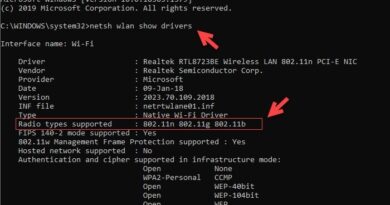Cuis Smalltalk and the History of Computing’s Future (with Juan Vuletich)
Smalltalk is one of those programming languages that’s lived out of the mainstream, but often referenced as an influence and an important part of programming history. It’s the cornerstone of object-oriented programming, it was into message passing before actors were cool, and it blurs the line between operating system, programming language and personal notebook. But what is it?
Joining us to discuss it is Juan Vuletich, the creator of one of Smalltalk’s latest incarnations, Cuis. In this episode we cover Smalltalk’s history, its design ideas, Cuis’s unique implementation and what makes this modern implementation something special.
Smalltalk is over 50 years old, but its vision of how computing could work has only begun. Let’s see if we can mine some ideas from it to take us into the next generation of computing…
–
The Cuis Smalltalk Book: https://cuis-Smalltalk.github.io/TheCuisBook/Preface.html
Cuis on Github: https://github.com/Cuis-Smalltalk/Cuis-Smalltalk-Dev
The Cuis Community: https://cuis.st/community
A Short History of Cuis: https://github.com/Cuis-Smalltalk/Cuis-Smalltalk-Dev/blob/master/Documentation/CuisHistory.md
Monticello VCS: https://wiki.squeak.org/squeak/1287
Juan’s Music Research: https://www.jvuletich.org/research.html
Back to the Future – The Story of Squeak (pdf): https://dl.acm.org/doi/pdf/10.1145/263700.263754
Kris on Mastodon: http://mastodon.social/@krisajenkins
Kris on LinkedIn: https://www.linkedin.com/in/krisjenkins/
Kris on Twitter: https://twitter.com/krisajenkins
by Developer Voices
linux foundation




I finally worked out what a term was that I must have misheard (and so must the subtitles translator) – sheeted code. For those that don't understand the wonderful accent, Juan is meaning JIT/JITted code, not sheeted code. And Smalltalk IoT is Smalltalk-80, of course. "Shamp" is jump. I hope these help. Aside from that misunderstanding, this is an excellent low-level interview about the guts of Smalltalk.
Hearing "Dynamic Typing", "Metaprogramming", "self" and more reminded me a lot of Ruby. Given the history I assume Ruby took these things from Smalltalk.
Great talk!
I'd suggest you interview Junio C Hamano – Git maintainer
Bits of Smalltalk history from Dan Ingalls
https://youtu.be/pACoq7r6KVI
The focus on children is the right path forward, timeless
I don't enjoy these talks about "history" of programming languages too much. I loved the database internals series, like the duckdb for example. I would sure like to hear some more technical aspect of writing a compiler, but this mathematical pondering about what the right ways to program are is not for me.
But obviously, the production quality and the host are both phenomenal! Again.
Smalltalk! Alan Kay is one of my favorites! Not only is he a brilliant programmer, but also a brilliant educator!
On a side not, you really have to get Sean Baxter on to talk about Circle. It makes C++ memory-safe like Rust. Far more promising than Carbon or CppFront.
I read Timothy Budd's "A Little Smalltalk" many years ago. It was a recommended read by Commodore and inspired the Rexx scripting language and its ARexx variant used in AmigaOS. Smalltalk, although hardly used in practice, introduced many good ideas that found their way into other languages.
Great interview! Always a pleasure listening to Juan
Alan Kay 🌿🌿🌿🌿
Another great episode. Really love these interviews with language designers, compiler constructors and real developers in general
I came here from the audio-only podcast to tell you thank you for this show. You're doing great stuff here and the world of RSS podcasting doesn't get enough praise.
Thaks for this to you and Juan!
Thanks for the reminder. Can't believe I wasn't subscribed with the amount of videos I've been watching recently <3
I worked for a few years for a company using smalltalk for their desktop UI (because reasons).
Getting bug reports that contained the whole app in the error state was pretty amazing,
I am slightly disappointed that Cuis has "true", false" and "nil" as keywords; the dialect I was using let a sufficiently bored developer undelete the constructors and release entirely new boolean and undefined values into the program.
C check, lisp check, prolog check. SmallTalk ups… but lots of Java, and 20 others. I no expert but cant see much relation between prolog and SQL, boolean logic? Prolog you right first order statements forming a knowledge base then you ask… sql manipulates data in logic statements. Ok. Maybe thats it. Props for the prolog 😉 nobody talks about it.
I'm so glad this channel is growing so well, great to see a channel get the recognition they deserve.
Thank you very much Kris. I has been a real pleasure!
Woah! Someone I actually know in person!
I write quite a bit of Prolog 😡
It would be good if you could interview Gilhad Bracha.
Smalltalk needs processes, a world of vms instead of one vm.
Alan Kay used to be active on Quora a few years ago (not that that’s all he did) and wrote quite a bit about Smalltalk, messaging, and systems thinking and design. I wonder if he’s available? Or perhaps you’ve already tried?
Argentine detected ❤ ⭐⭐⭐